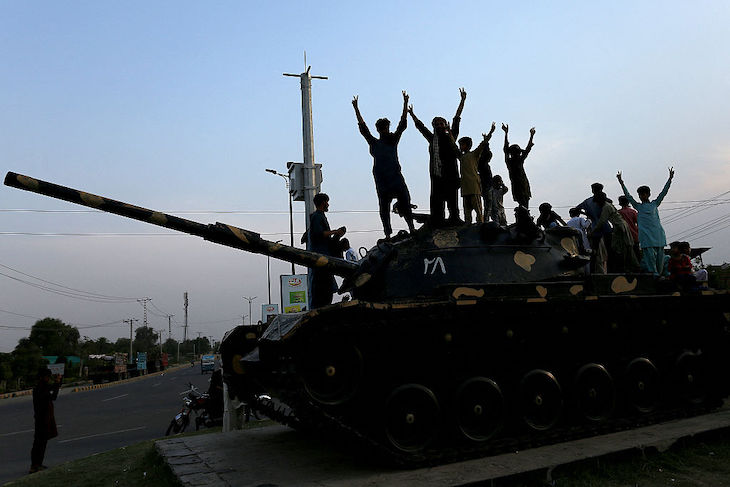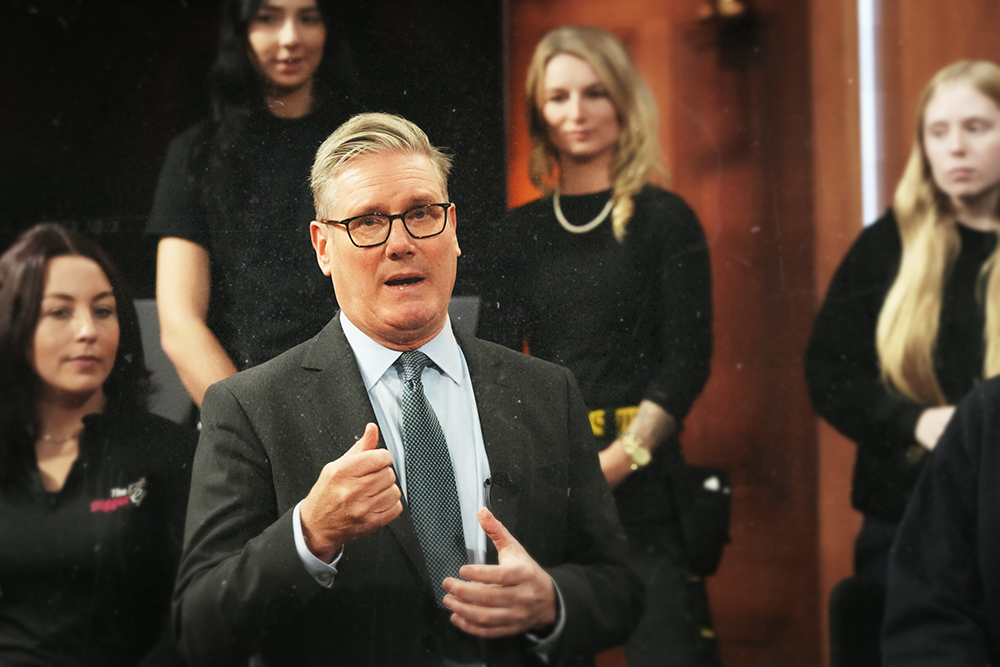The cold-blooded killing of unarmed tourists by terrorists in Indian administered Kashmir has horrified not only Indians but people all over the world. The conviction in India that Pakistan was somehow or the other behind this attack, led it to strike at nine sites in Pakistan which it regarded as ‘terrorist camps’. Pakistan, in turn, attacked the military bases from where it believed the attacks on its territory had come and, given that these are two nuclear powers, the whole situation seemed to be escalating alarmingly.
Pakistan will have to take some responsibility for dismantling Islamist extremist organisations
The ceasefire, therefore, that both the USA and Pakistan agree was brokered by the former (India has a different spin on it), and which seems to be holding, has come as huge relief to residents on both sides of the border. The question now is what is to happen after the guns have stopped firing? Will this be just another standing away from arms for the time being or will it be followed, as President Donald Trump wishes, by talks on substantive issues dividing the two countries?
One of the first matters to be agreed will have to do with the withdrawal of troops from borders and other kinds of disengagement from a ‘war footing’ of the armed forces of both sides. This is important to do so that conflict cannot flare up again. From Pakistan’s point of view, the reactivation of the Indus Basin Water Treaty of 1960, which divides up the waters of the Indus and its tributaries between the two nations, is an existential issue. Agreed under the aegis of the World Bank, it has been an international model for water sharing, even for countries where there has been a history of conflict. Its unilateral suspension by India at the beginning of the recent action, has come as an unpleasant surprise to the government and people of Pakistan and was seen by them as an ‘act of war’ in itself. It must be a priority for the World Bank and the United Nations to secure its reactivation.
Whatever the rights and wrongs of the present situation, Pakistan will have to take some responsibility for dismantling Islamist extremist organisations which have taken root in its soil. Many of them arose when western and gulf powers were looking for ways to confront and destabilise the Soviet presence in Afghanistan. The creation of these bodies (including what later on became the Taliban) certainly brought down the Soviet-supported socialist government in that country but it also brought about a network of extremist organisations within Pakistan itself and, indeed, in the region as a whole.
These organisations are not only a threat to India but to the national fabric of Pakistan itself, not least to groups like the Shi’a and the Ahmadiyya, as well as to non-Muslim minorities such as the Christians and Hindus. Both India and Pakistan will need to provide cast iron and internationally verifiable guarantees that they will not foment religious or nationalist terrorism in the territories of the other. Such an agreement is vital as a confidence building measure and also to prevent a similar flare up in the future.
The casus belli for conflict between the two nations has most often been the dispute over Jammu and Kashmir. The background to this is that, at the time of partition, the Hindu Maharaja acceded to India, while the largely Muslim population wanted the territory to go to Pakistan. The resulting war between the two nascent states was halted by a UN-backed ceasefire, with the territory divided between the two along a ‘Line of Control’. All parties promised the people of Kashmir a referendum under UN supervision to determine their future. This has never taken place. There has been some change in the demographics of Kashmir but the Muslim population, as a whole, still wishes either integration with Pakistan or independence.
If President Trump is serious about the US using its good offices to bring the two countries around a negotiating table, some realities on the ground will have to be taken into consideration. The first one is that hitherto India has always refused international mediation in resolving the dispute. All the signals are that it will do so again. It has to be asked, however, whether facilitation is the same thing as mediation. After the 1965 war between the two, the Soviet Union was able to bring the two together at Tashkent. This resulted in a breaking down of barriers and an agreement to resolve the Kashmir dispute peacefully. Will India agree to a similar role for the USA? The claim that all issues between India and Pakistan can be resolved bilaterally is not borne out by nearly 80 years of history.
The temptation for the international community is to urge a solution such that the ‘Line of Control’ becomes a border between Pakistani administered and Indian administered Kashmir. From the Pakistan point of view, this would release enormous resources for much needed education, health and social welfare programmes which are, at present, being spent on defence. It does not, however, take account of the wishes of the Kashmiri people. India is unwilling to yield on this matter, because many there feel a spiritual link with Kashmir and because of the fear of encouraging other separatist movements in East Punjab, North East India and even the South. If negotiations are to succeed, however, there will have to be some ‘give’ on either side. The Line of Control may have to be adjusted and there may need to be some population movement to take account of where people want to be. No one can predict the outcome of such talks but experience has shown that ‘jaw-jaw’ is surely better than ‘war-war’!
One other matter, which should be of some concern to the international community, and which should be discussed, is that of the use of nuclear weapons, whether conventional or tactical. It should be possible to achieve an agreement on ‘no first use’ of either kind by either of the parties. This would be a security boon for the region as a whole and may provide a model which can be used elsewhere.
The recent armed conflict has certainly caused suffering for ordinary people on both sides of the border, but the situation can also be seen as an opportunity to resolve long standing differences and disputes, preferably with international facilitation but, if not, then bilaterally. Let us hope and pray, for the sake of ordinary people in both countries, that the opportunity will not be wasted but seized with both hands by all sides to the conflict.







Comments